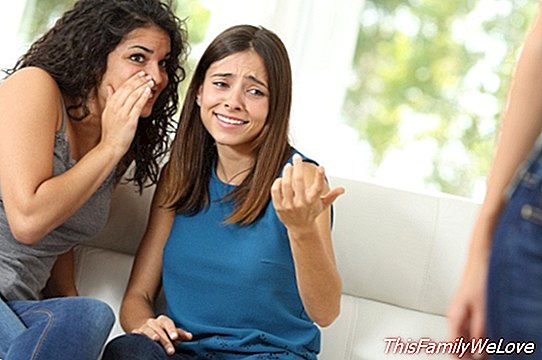How to avoid having toxic children

Normally, children who do not treat their peers well come from families where the educational style is at one of the extremes, or authoritative or permissive. According to the conclusions that have been obtained from different experiences in recent years, in the first case they have learned that the way to communicate with others is through the imposition of their own opinions.
The most accepted classification of educational styles divides them into assertive (sets the limits and consequences in a balanced way), indulgent (he apologizes for all behavior and bases his relationship with the children emotionally), authoritarian (excessive control and rigid consequences) and permissive (Little control without establishment of consequences).
Children who have grown up in the permissive style of education have become accustomed to doing what they wanted when they wanted to without being prevented from fulfilling their wishes. Therefore, it is important to define what our educational interests are as parents and act accordingly, since the model we give them has a determining influence on how they communicate with their classmates.
Why is it so hard to see the defect in our children?
In an atavistic way in our western culture, the concept of "being a good father or good mother" is understood as the attitude of defending children in all situations and all areas. However, a good parent looks for what is best for the growth of their child and for their development as a person. In these educational objectives is the correction to an attitude that is not good for him.
Sometimes, parents are reluctant to see the problem that their child presents because it does not correspond with the image they have of the child and they feel it as a threat or a criticism towards the family. In other cases, the parents themselves "fear" the minor's response to the correction and avoid facing it.
However, educating children to be happy and socially skilled adults includes correction and self-analysis to see where we can do better. In the face of insecurity about how to act if we believe that our son does not treat his companions adequately, we can go to a professional who will guide us in a simple way in one or two sessions about the establishment of norms and consequences in the home.
Educate from the first day to avoid having toxic children
Not to have "toxic children"that make life impossible for others the key is inducarles in values since the first day. The teachings we give our children about how they should behave in the yard during the infantile stage, how to attend to that partner with whom nobody wants to play, or who is more delayed in class, is marked because he wears glasses or is something fat, tall or short. It is very important to explain to children from small the equal dignity of all and make them understand how important it is to care for those who need it most.
Comments by seemingly banal parents, such as "you are worth more than that" or excessive pressure to succeed in sports activities, may be preparing the breeding ground for a future harasser. We have to instill in our children the permanent search for justice so they can detect and communicate any case of harassment they see around them.
11 keys to educate our children in friendship
1. To clarify to the children the concept and the demands of true friendship.
2. Help children to distinguish authentic friendship from superficial and convenience.
3. Help distinguish friendship from other types of relationships: companionship, sympathy, sociability, love.
4. Expand the idea of friendship: openness to new people
5. Present friendship as a relationship that requires reciprocal ethical behavior.
6. Orient the children to possible problems derived from friendship (excessive gregariousness, aggressive behavior)
7. Orient the children to the risks of lack of friends and bad friends: know how to overcome shyness or comfort.
8. Encourage them to guide and help their friends to be better people and better friends.
9. To have friendship (on the part of the parents with some friends of the children.
10. Establish friendship with the parents of the children's friends, in order to cooperate in everything related.
11. Set an example to the children of true friendship: loyal, respectful, sincere, generous *
Mar García Sánchez. Valencian Institute of Creative Pedagogy




